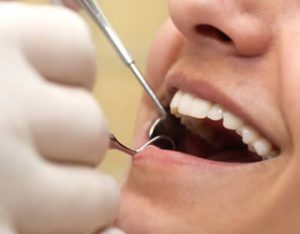Smoking And Oral Cancer
Oral cancer – a life changing disease. How to minimise the risks….
 Cancer, or ‘the big C’ as it is sometimes called, is well known to most of us and we may well know people who have had this disease. For those of us who haven’t, it can be a pretty frightening thought although treatments are much better now and the prognosis generally more hopeful than in the past. Fatalities do still occur of course but even survivors can find their lives altered quite drastically, sometimes limiting their opportunities in life.
Cancer, or ‘the big C’ as it is sometimes called, is well known to most of us and we may well know people who have had this disease. For those of us who haven’t, it can be a pretty frightening thought although treatments are much better now and the prognosis generally more hopeful than in the past. Fatalities do still occur of course but even survivors can find their lives altered quite drastically, sometimes limiting their opportunities in life.
Many cancers such as lung or breast cancer are well known but did you know that you can get oral, or mouth cancer too? This might not be as rare as you think and is responsible for one in every fifty cancers that are diagnosed. Like many other types of cancer, there is a lot that we can do to minimise our risks and today’s Cygnet Dental Practice blog offers some relevant advice for our Wickford and Rayleigh patients.
Smoking – the number one cause
There is little doubt that the main contributor to oral cancer is smoking. Thankfully, many people do now realise the dangers of smoking and have managed to quit. There are still thought to be around 14% of the UK population who do smoke, a number which is still too high. It is also quite likely that many of these will be younger people who tend not to think about illness and mortality and feel invincible at that age. Sadly, taking the decision to start smoking when young is likely to lead to health problems in later life.
If you do smoke, now is the time to quit. There are many ways this can be done, from nicotine patches to vaping devices. There are also many support groups who will be able to help you quit and we recommend that you contact one of these for advice.
Alcohol
Although the odd pint or beer or glass of wine should do little harm; if you are a regular drinker or drink a lot, your risk is similar to that of a smoker, and, of course, if you do both, your risks are even higher. Try to drink sensibly and make sure to drink plenty of water to stay hydrated too as this will help to keep your mouth in better health.
HPV
HPV or ‘human papillomavirus’ is a growing concern with around one in four cases being linked to this. In younger people it is even higher. HPV is transmitted through oral sex and can cause both mouth and throat cancer. Practising safe sex will help to minimise this risk as will limiting the number of sexual partners.
Symptoms of oral cancer
There is not one single symptom that indicates that you might have oral cancer. There are a number of common ones which might include:
- Swelling or lumps in the oral cavity
- Numbness or painful sensations in the mouth or neck area
- Red or white patches in the mouth
- Unexplained bleeding in the oral cavity
- Persistent sores
- Difficulty in swallowing or speaking
These are just a few of the main symptoms but there may be others too.
Should you worry?
With the information available to us via the internet, news etc, it is easy to worry constantly about whether an ache or pain or a rash is something serious. In most cases they won’t be but that doesn’t mean that you should ignore them. We do encourage patients of the Cygnet Dental Practice to contact us if they are concerned about any dental issue at all.
Apart from stopping smoking and following the other advice above, the most important thing that you can do is to make sure that you have your mouth checked regularly by one of our dental team.
Patients may think that we only check your teeth and gums during your six monthly examination. The fact is that we also check the general health of your mouth. Because of the nature of our profession, we are in an ideal position to monitor the mouth on a regular basis and are able to detect lumps etc during your check up. It is important for patients to remember that we are not general medical specialists though and that we do not and can not diagnose whether a lump, or red patch is actually cancer or not. If we notice anything that we feel concerned about, we will refer you to your GP for further investigation. In most cases it is likely to be something less serious but as detecting and starting cancer treatment as soon as possible contributes to a better outcome, it is important to act quickly.
Your six monthly check ups are important not only for cancer detection but also to maintain healthy teeth and gums. To make your appointment at our Wickford dental practice, please call us today on 01268 733078.
